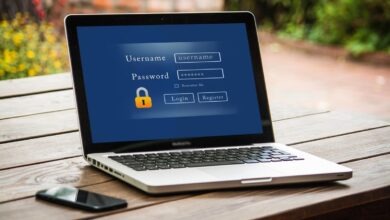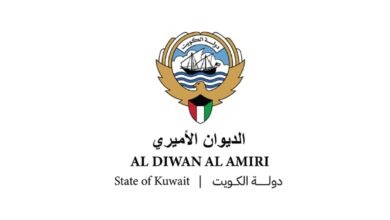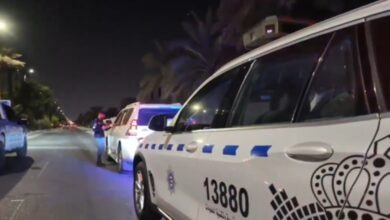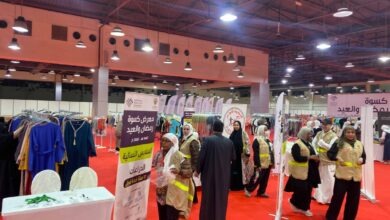Kuwaiti judiciary slams ‘test cheaters,’ issues stern warning
The court ruled to imprison two teachers for a period of six months for photographing exam questions and being involved in cheating groups
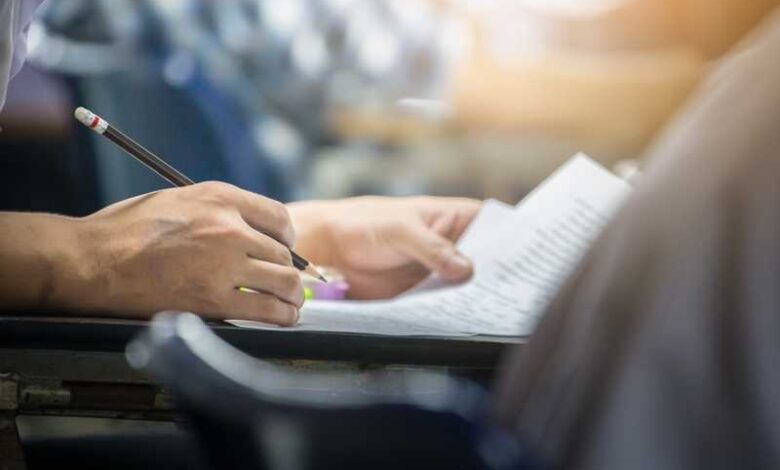
While the Kuwaiti judiciary warned against seeking easy success and imaginary superiority, it considered that “cheating is the greatest danger to the education system.”
In one of the cases involving the leakage of high school exams, the Court of Appeal ruled on Thursday to imprison a male and a female citizen for two years with hard labor. They were found guilty of running groups that facilitated cheating during high school exams.
The court also ruled to imprison two teachers for a period of six months for photographing exam questions and being involved in cheating groups. “In doing so, they violated the honor of the lofty profession and their role as role models for generations, committing a legally criminal act.”
The court acquitted the four defendants and other defendants of laundering the money they obtained from the students.
The Criminal Court stated, in the substance of its conviction ruling, that the defendants in the test-leaking case created groups via WhatsApp to sell questions, and made significant profits from selling questions to those seeking easy success.
The court stressed that the tests are kept confidential to assess true levels of students and that leaking them by unscrupulous individuals is a crime deserving punishment.
The court discussed the investigations, evidence, and documents that proved one of the defendants transferred an amount of 177 thousand dinars to a company account in a single day to disguise his activities and those of his partners in selling high school exam questions.
The exchanged messages and conversations via WhatsApp revealed that the defendants hold education in contempt, facilitate cheating, and sell questions to individuals seeking imaginary superiority.
The Public Prosecution had referred three cases to court, accusing dozens of people who were charged with “leaking tests, forgery, and money laundering.” There are still other cases pending before the judiciary.
Additionally, the Ministry of Education’s strict measures succeeded in reducing cheating rates during the first academic period of the current year. Its efforts also resulted in the arrest of those accused of leaking tests, in cooperation with its counterpart at the Interior Ministry, who were then referred to the judiciary.
Charges and crimes
The Public Prosecution charged the defendants in the Criminal Investigation Department within the period from May 1, 2022, until January 16, 2023. The first, second, third, fourth, and fifth defendants were charged with the crime of money laundering totaling three hundred and eight thousand nine hundred and forty-four Kuwaiti dinars and five hundred fils, knowing that it was the proceeds of their crimes.
Specifically, the second and third defendants received this money from the beneficiaries of the fraud through electronic payment links, and they possessed the money in cash and in the aforementioned accounts. They did this in preparation for dividing it with the first, fourth, and fifth defendants, who received their share of it.
They all engaged in various trading, depositing, and transfer operations between themselves and their bank accounts with the aim of concealing and camouflaging the illegal source of these funds. These funds were obtained from “fraud groups” and the sale of high school exams, as indicated in the investigations.
Scientific secrets
The first, sixth, seventh, eighth, ninth, tenth, and eleventh defendants, in their capacity as public employees, teachers, and administrators at the Ministry of Education, also disclosed scientific secrets related to the Ministry of Education.
These secrets are related to secondary school exams, which should remain confidential by nature according to special instructions derived from cheating regulations and related ministerial decisions applied to students.
The first defendant coordinated with the rest of the defendants, leveraging their contact with the testing committees to provide him with pictures of those tests immediately after the testing committees convened. This was done in preparation for developing model solutions for the exams.
According to the court, the defendants created groups using the instant communication application WhatsApp for this purpose. Their aim was to achieve special interests for themselves and those who benefited from the fraud operations by illegally obtaining a material benefit in exchange for publishing these secrets.
They also provided typical answers to these tests and received unreal evaluations, which harmed the interests of the Ministry of Education and the rest of the students. This resulted in a lack of parity between them, as shown in the investigations.
The accusations against the accused stated that a female accused deliberately created electronic payment links and sent them to the first accused to use them for collecting subscription revenues in those groups.
The fifth accused received the test forms from the first accused, solved them in an exemplary manner, and sent them back for publication, thus the crime was committed based on this agreement and assistance. All of the defendants used telephone communications via their seized mobile phones to commit crimes of leaking and selling tests.
Facts of the case
The facts of the case can be summarized by reviewing the papers, the investigations conducted, and the trial sessions. This is supported by the report submitted to the Public Prosecutor by the Ministry of Education and the testimonies of its officials during the Public Prosecution’s investigations.
The Ministry of Education monitored several posts on various social networking sites and instant messaging applications related to the leaking of sample questions for examinations of academic subjects for the secondary stages. This is despite the confidentiality enjoyed by those tests, as derived from their nature and from the cheating regulations and related ministerial decisions applied to students who violate them.
Confidentiality is imposed from the time the general instructor of the subject is addressed and assigned to prepare the test forms until the end of the test committee.
Harmful to the interests of “education”
It was stated in the lawsuit that shortly after distributing the test papers to the students in the committees and within the allotted time for the test, pictures of the test along with the answer forms attached to it were spread. These were published on social media sites by individuals outside the test committees and were accompanied by their pseudonyms.
As a result, the perpetrators of the acts of publishing the tests and their solution models during the test period achieved material benefits and harmed the interests of the Ministry of Education and all students. This is because the beneficiaries of the cheating process obtained unreal evaluations through the publication of the test models.
Leaked tests
Investigations revealed the leakage of exams for the tenth and eleventh grades in their scientific, literary, and religious sections. These exams began on December 18, 2022, and ended on December 29, 2022.
Meanwhile, the tests for the twelfth grade in its sections began in January 2022 and ended on January 16, 2022. The dates of sending the tests coincide with the ministry’s testing schedule.
Questions leaked via social media
The court stated that during the Public Prosecution’s investigations, an officer from the General Department of Criminal Investigation and the Anti-Money Crimes Department testified. He mentioned that reports had been received from the Ministry of Education to the competent authorities in the Ministry of Interior regarding numerous publications related to secondary school exam papers and their solution forms spreading through various social media sites during the examination committees’ period.
Through research and investigation, many of these publications were monitored and tracked to determine their source and the mechanism of the incident. Some advertisements on various social networking sites allowed individuals to participate in groups via the WhatsApp application for a fee. Upon joining these groups, test solutions were sent within the first fifteen minutes of the test period, allowing students to benefit from these publications in various ways.
Joining ‘cheating groups’ for 40 dinars
The incident officer stated that after tracking these advertisements and seeking assistance from one of his secret sources, the source was able to participate in one of the groups dedicated to publishing and solving tests via an electronic link for the amount of 40 dinars.








